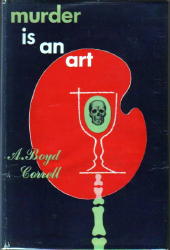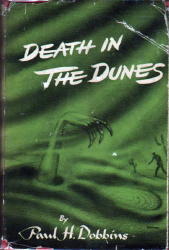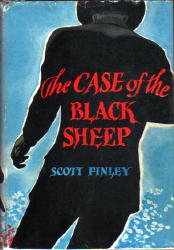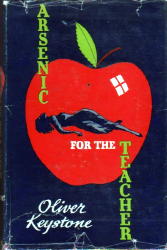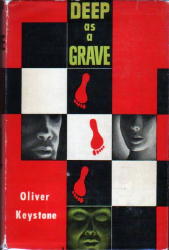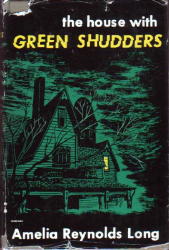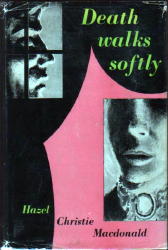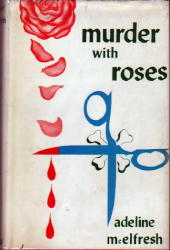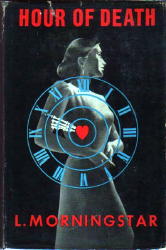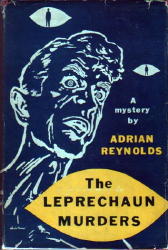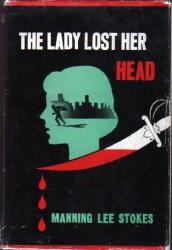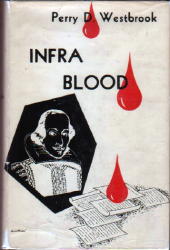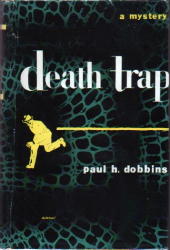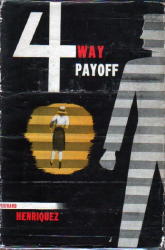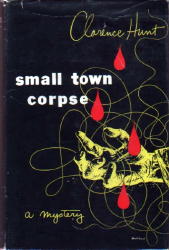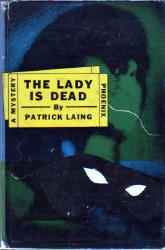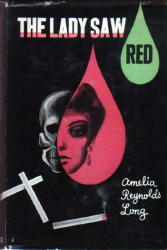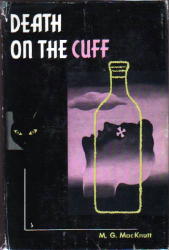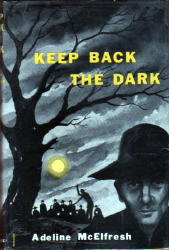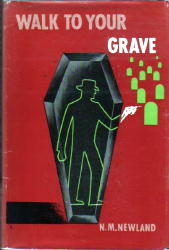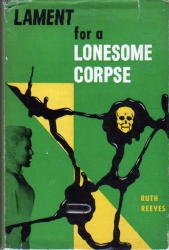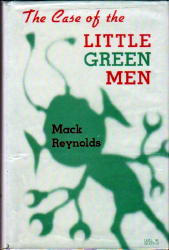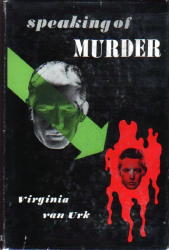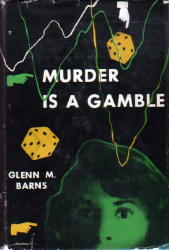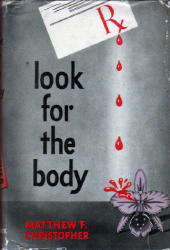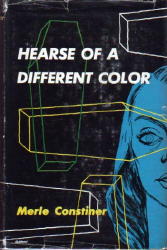
1951
1952
FOOTNOTE: The book The Round Table Murders, by Adrian Reynolds, is found in this section in Bill Deeck’s book. The title page and copyright page state Phoenix Press; there is also a list of previous Phoenix Press titles on the back cover, so it was obviously intended as a Phoenix title. On the other hand, the boards state Arcadia House and so does the dust jacket. It is arguable either way as to where it belongs, but I still vote for including it in the Arcadia section here on the website; it is there where you’ll eventually find it. I’ve recently uncovered some info on the Phoenix-Arcadia House merger and on Samuel Curl of Hillman-Curl that will explain more. The following quoted passages are from a book of reminiscences by literary agent Donald MacCampbell, sardonically titled Don’t Step on It – It Might Be a Writer (Sherbourne Press, 1972). In the 50s MacCampbell had a large stable of writers who specialized in paperback originals for Gold Medal, Avon, and such digest outfits as Croydon and Quarter-Books, the best known of them to modern readers, Edward S. Aarons. In the 40s MacCampbell specialized in selling books to the lending library outfits, and so he can pretty much be taken at his word, even his memory was a bit shaky in spots. (I met him once, through another of his clients, Jay Flynn; Flynn and I went up to MacCampbell’s offices in New York in the late 70s, wherein he plied us with 20-year-old single malt Scotch in an effort to get me to leave my then agent and sign with him. The ploy didn’t work. But I liked him anyway and I still have fond memories of that Scotch.) Here’s what he has to say in Don’t Step on It (bracketed material mine) : “Samuel Curl was a young Irishman who had lifted himself by his boot straps into the precarious business of publishing. A former salesman, he had formed an unhappy partnership with one Alex Hillman. [This was in 1935; Hillman at that time was president of Godwin and Arcadia House, Curl the firm’s sales manager. The partnership was dissolved ca. 1940, when Hillman went on to other pursuits.] Subsequently Curl had gone into business for himself, calling his firm Arcadia House [which included the Mystery House and Samuel Curl imprints] and paying generous advances to some pretty weak writers. Pegged as a soft touch, he soon found himself running a kind of building-and-loan society for the indigent. “The Arcadia House line, which Sam had developed with tender care, ended up in bankruptcy [in 1948] and was taken over by a competitor, Nat Wartels, who absorbed it into his own lending library operation, Phoenix Press. Later Curl reorganized under his own name [actually he entered into another partnership, this one with Thomas Bouregy in 1952, to form Bouregy & Curl] only to fail again [he sold out ca. 1956 to Bouregy, who continued publishing as Thomas Bouregy, Inc.]. “Phoenix Press was a subsidiary of Crown, a more ambitious operation, and its books were edited by a tireless young spinster named Alice Sachs who could process light fiction the way a baker turns out bread. [In 1952] Phoenix was changed to Arcadia House ... and, in 1970, to Lenox Hill Press.” [MacCampbell doesn’t explain why Nat Wartels decided to revive the Arcadia House name in 1952, rather than continue operating as Phoenix Press. A guess: His Phoenix line had begun to lose money and he felt that a name change would help boost sales – a much cheaper gambit than trying to upgrade the quality of the mysteries, westerns, and romance novels he published. Certainly the Arcadia House mystery titles from 1952 onward, which continued to be edited for many years by Alice Sachs, were on an equally low par with those that appeared previously under the Phoenix Press imprint.]
– Bill Pronzini
Return
to
the Main Page.
|
